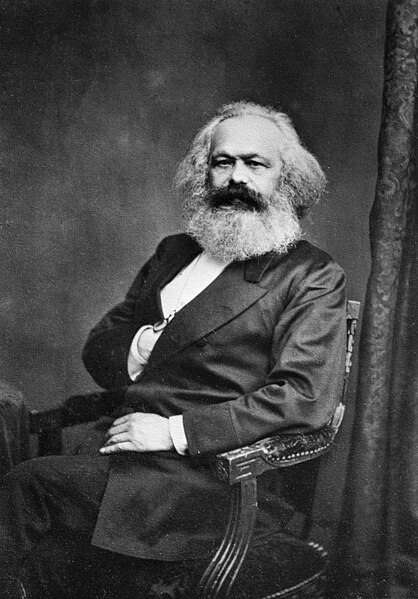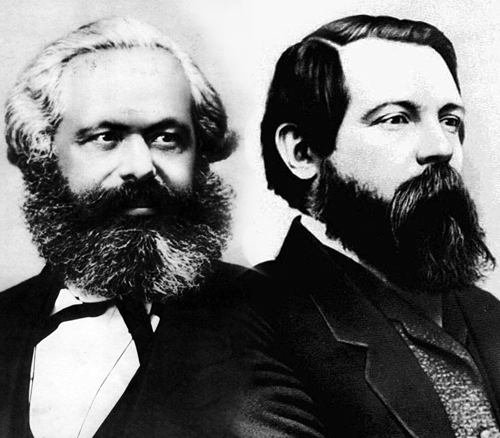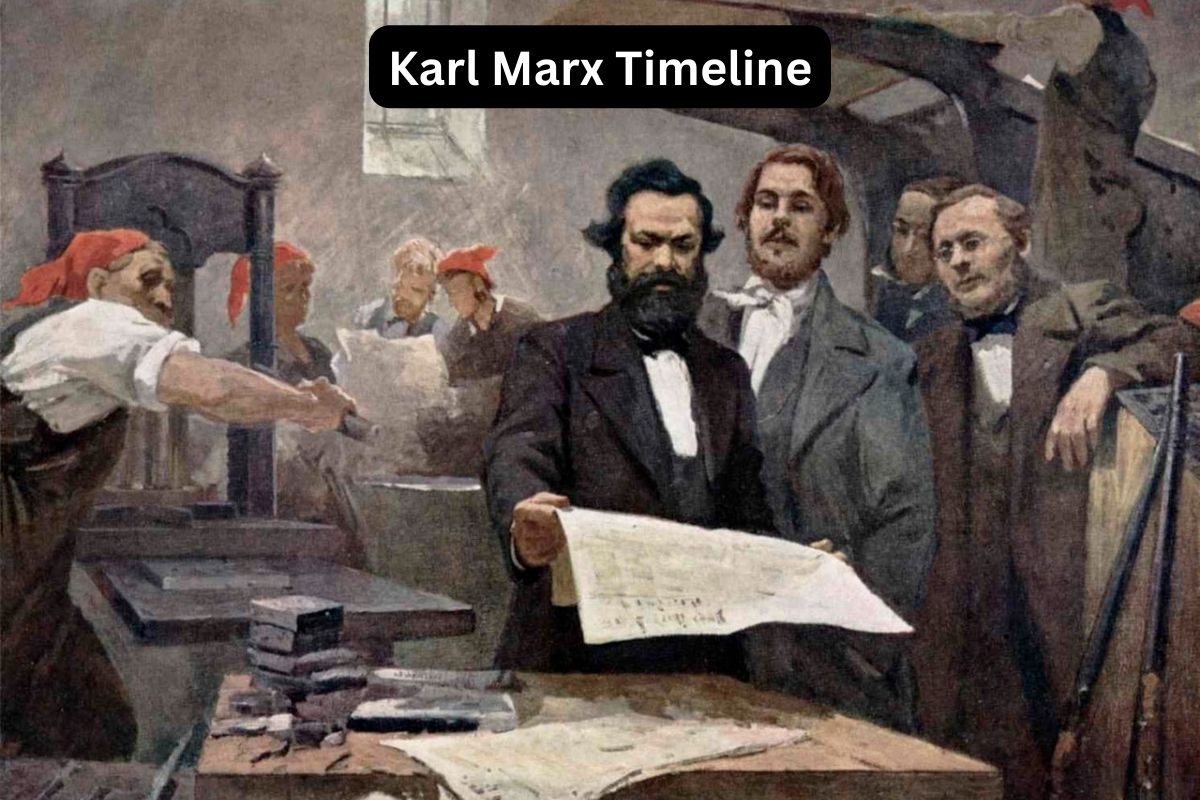Karl Marx, born in 1818 in Trier, Germany, remains one of the most influential figures in modern history. His ideas on politics, economics, and society have sparked intense debate, inspired revolutions, and shaped the course of the 20th and 21st centuries.
From his early years as a student in Prussia to his later life in London, Marx’s journey was marked by intellectual vigor, political activism, and a relentless quest for social justice.
In this article, we explore the life and legacy of Karl Marx, examining key moments in his life, his groundbreaking theories, and the lasting impact of his work on our understanding of capitalism, socialism, and the struggle for human liberation.
Join us as we delve into the enduring relevance of Marx’s ideas in today’s world, exploring how his analysis of class struggle, exploitation, and alienation continues to resonate with contemporary challenges and aspirations for a more just and equitable society.
| Date | Event |
|---|---|
| May 5, 1818 | Karl Marx is born in Trier, in the Kingdom of Prussia (now in Germany). |
| 1835 | Marx enrolls at the University of Bonn to study law but later transfers to the University of Berlin. |
| 1841 | Marx receives his doctorate in philosophy from the University of Jena. |
| 1843 | Marx moves to Paris where he meets Friedrich Engels, with whom he develops a lifelong friendship. |
| 1848 | Marx and Engels publish “The Communist Manifesto,” outlining their ideas on class struggle and revolution. |
| 1849 | Marx is expelled from France due to his radical political activities and moves to London. |
| 1857-1858 | Marx begins work on his major economic work, “Das Kapital.” |
| 1864 | Marx becomes involved in the International Workingmen’s Association (First International). |
| 1883 | Karl Marx dies in London on March 14, at the age of 64. |
Timeline of Karl Marx
May 5, 1818: Karl Marx is born in Trier, in the Kingdom of Prussia (now in Germany)
Karl Marx is born in Trier, in the Kingdom of Prussia, which is now located in Germany. He was born into a middle-class family of Jewish descent.
His father, Heinrich Marx, was a successful lawyer and his mother, Henriette Pressburg, was from a respected family.

1835: Marx enrolls at the University of Bonn to study law but later transfers to the University of Berlin
Marx begins his academic journey by enrolling at the University of Bonn to study law. However, he soon realizes his interest lies more in philosophy and literature than in law.
As a result, he transfers to the University of Berlin to pursue his passion for philosophy.
1841: Marx receives his doctorate in philosophy from the University of Jena
Marx completes his doctorate in philosophy from the University of Jena. His doctoral thesis, titled “The Difference Between the Democritean and Epicurean Philosophy of Nature,” reflects his early engagement with classical philosophy and marks the beginning of his intellectual journey toward developing his own theories.
1843: Marx moves to Paris where he meets Friedrich Engels, with whom he develops a lifelong friendship
Marx moves to Paris, where he becomes involved in the intellectual and political circles of the time. It is in Paris that Marx meets Friedrich Engels, a fellow German thinker who becomes his lifelong friend and collaborator.
Also Read: Facts About Karl Marx
Engels, who had been working in Manchester, England, as a businessman, shared Marx’s interests in radical philosophy and political activism. The meeting of Marx and Engels marks the beginning of one of the most influential intellectual partnerships in history.
1848: Marx and Engels publish “The Communist Manifesto,” outlining their ideas on class struggle and revolution
Marx and Engels co-author “The Communist Manifesto,” a pamphlet commissioned by the Communist League. Published in February 1848, the manifesto outlines the principles of Marxism and calls for the overthrow of the capitalist system.
It argues that throughout history, societies have been defined by class struggle between the bourgeoisie (the capitalist class) and the proletariat (the working class), and it predicts the eventual triumph of the proletariat leading to a classless society.
Also Read: Accomplishments of Karl Marx
“The Communist Manifesto” quickly becomes one of the most influential political documents in history, inspiring numerous revolutions and socialist movements around the world.

1849: Marx is expelled from France due to his radical political activities and moves to London
Following the publication of “The Communist Manifesto” and his involvement in revolutionary activities, Marx is expelled from France due to his radical political views. He moves to London, where he spends the remainder of his life.
In London, Marx continues his political and intellectual work, contributing articles to various newspapers and participating in socialist organizations.
Despite facing financial hardship and personal tragedies, including the death of several of his children, Marx remains committed to his revolutionary ideals and the advancement of socialist thought.
1857-1858: Marx begins work on his major economic work, “Das Kapital”
Marx begins working on his major economic work, “Das Kapital” (“Capital”). This monumental work aims to critique capitalism and provide a scientific analysis of the capitalist mode of production. Marx intended “Das Kapital” to be a comprehensive exploration of the economic laws governing capitalist society.
He dedicated years of research to studying economics, history, and political theory in order to develop his analysis. However, Marx only completed the first volume of “Das Kapital” during his lifetime, with the subsequent volumes being edited and published posthumously by Engels.
1864: Marx becomes involved in the International Workingmen’s Association (First International)
Marx becomes involved in the International Workingmen’s Association, also known as the First International. The International was a global organization aimed at promoting workers’ rights and international solidarity among the working class.
Marx played a significant role in shaping the political direction of the International, advocating for a revolutionary approach to achieving workers’ emancipation.
Despite ideological differences and internal conflicts, the First International provided a platform for Marx to disseminate his ideas and influence socialist movements across Europe and beyond.

1883: Karl Marx dies in London on March 14, at the age of 64
Karl Marx passes away in London on March 14, at the age of 64. Despite facing health problems, financial difficulties, and personal tragedies throughout his life, Marx remained dedicated to his revolutionary ideals and his intellectual pursuits until the very end.
His death marked the passing of one of the most influential thinkers in modern history, whose ideas continue to shape political, economic, and social thought to this day.
Marx’s legacy remains contested and subject to various interpretations, but his contributions to philosophy, economics, and political theory are undeniable.
